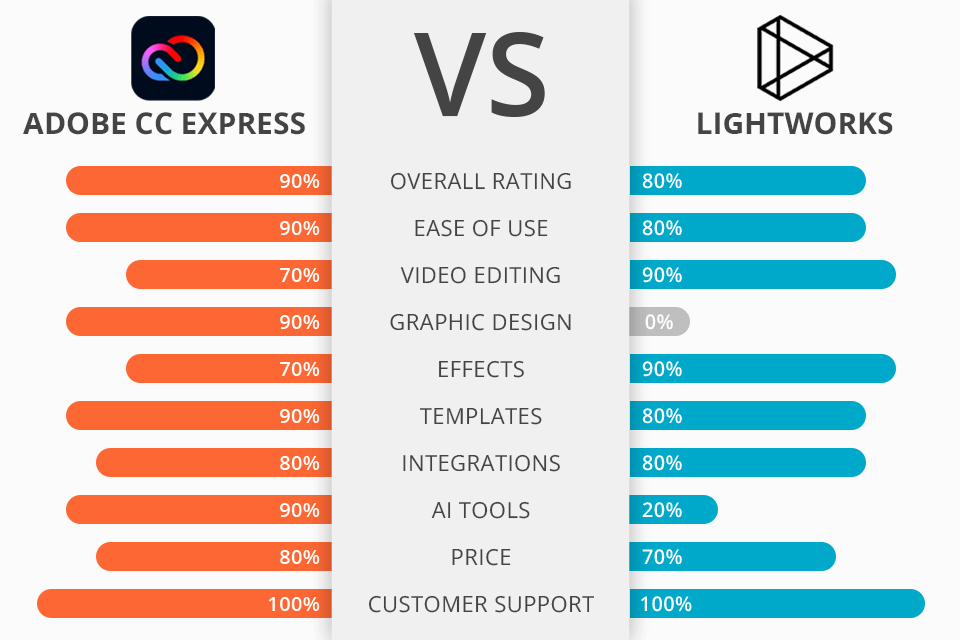
Comparing Adobe Express vs Lightworks, you will notice that both programs are suitable for newcomers and seasoned editors. They are straightforward and offer a massive selection of handy features to work over complicated designs without trouble. Though Adobe’s toolkit lacks some Lightworks features, the software appeals to users with its versatility and a variety of automated tools, which are great for creating short, undemanding social media graphics and slideshow presentations.
Adobe Express allows trimming clips, embellishing videos with stunning effects, adding music to your projects, resizing content to make it suitable for various social media platforms, etc. The provided selection of editing features is simply amazing. Its tight integration with most common social media networks is a considerable advantage.
Lightworks has a simplified UI designed with novices in mind. Though professional editors should also turn attention to this program, as its rich toolset can handle all your basic post-production tasks. The program offers a great selection of pre-made graphics, which you can customize and use to create a pro-level video in several clicks. Thanks to its extensive compatibility with various plugins, you can add VFX to your videos with ease.
When deciding which tool is better, I chose Adobe Express as a winner. This program is more universal, as you can use it to refine videos and work with graphics. Besides, thanks to its automated toolset, such tasks as changing video playback speed take only a few seconds.
Adobe Express
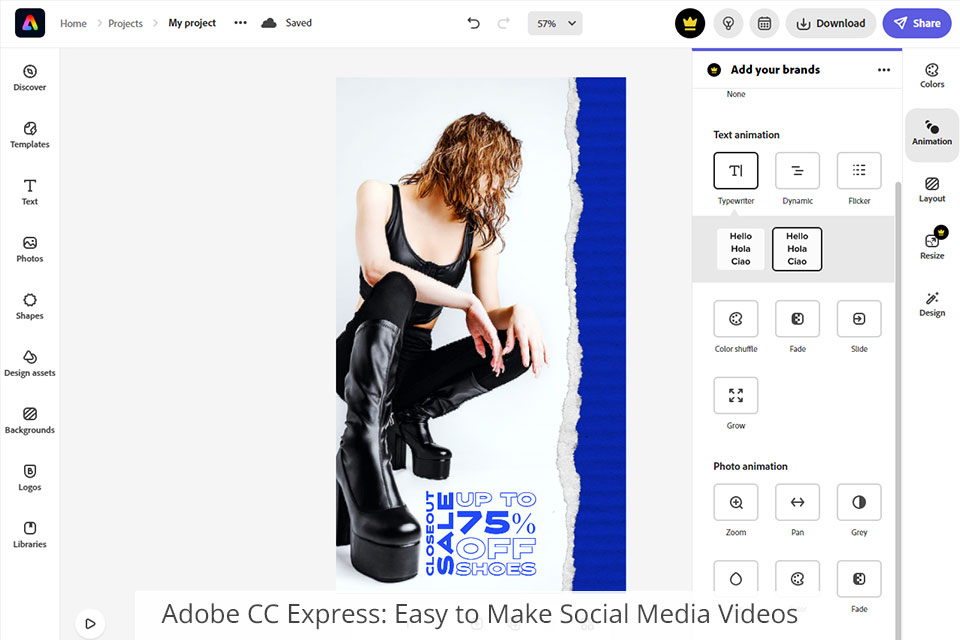
Adobe Express is a multipurpose tool for editing films, making logos, tweaking pictures, and designing graphics with ease. After launching other programs, a user sees a timeline and media viewer, but this is not about CC Express. The first thing you need to do to start your project is to invent a title or story for it. Afterward, browse the selection of templates (‘Promote an Idea’, ‘A Hero’s Journey’, ‘Teach a Lesson’, etc.) and find the one that is suitable for a video you are working on.
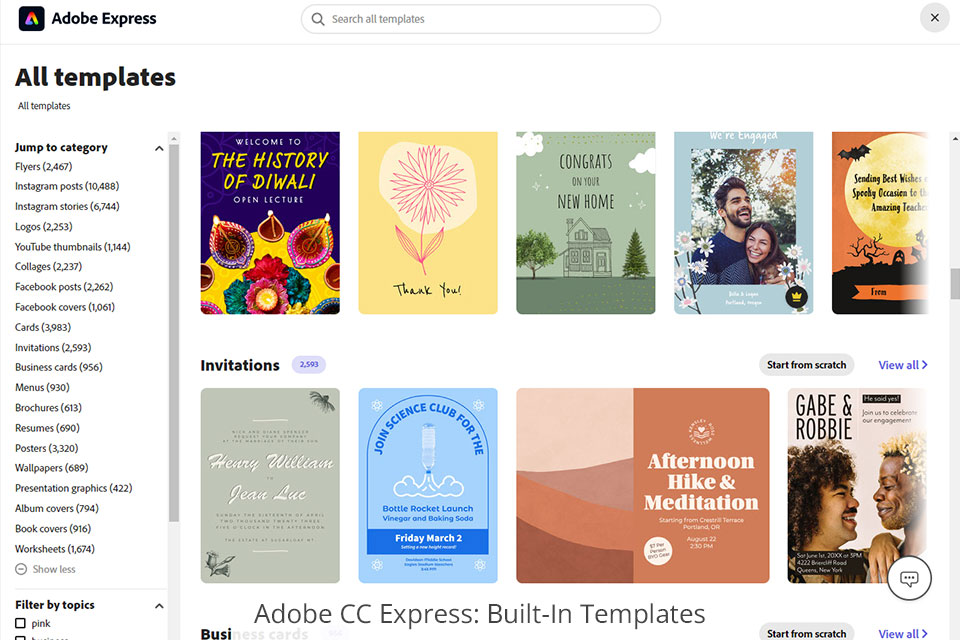
Once you’ve chosen a template or started to work on your design from scratch, you can proceed with your project creation. From this point, your clip editing routine becomes more familiar. Comparing Canva vs Adobe Express, you will notice that both programs feature intuitive UIs, and like its competitor, the Adobe product is primarily designed to create short and simple clips for social media networks.
If you’ve already used the Canva design app, you will not struggle to figure out what icon to choose to perform this or that task when working with the Adobe product. The work with graphics is also similar, but CC Express also offers quick editing actions, which simplify and accelerate many routine tasks like background removal, resizing clips, etc.
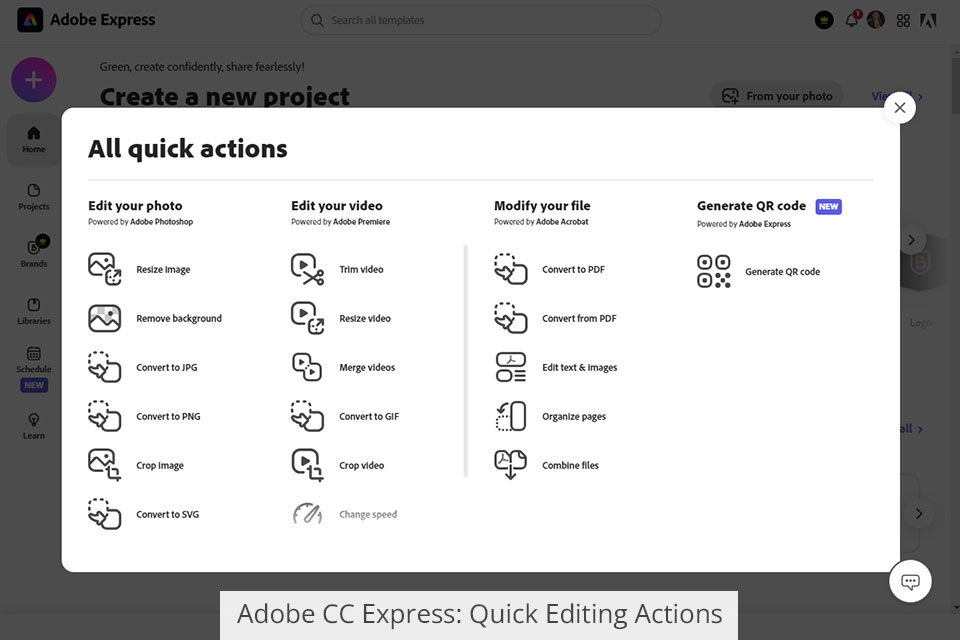
If you want to import videos, text, images, or icons from your computer, find and choose the + button. Besides, it is possible to add your media assets from various cloud storage like Dropbox, Google Photos, Google Drive, etc. At the bottom of the UI, you will find a mic button for recording narration over the selected clip.
Like its competitor, the program has all the necessary standard options for resizing, trimming, merging, cropping, or reversing files. Besides, you can speed up a video in Adobe Express or slow it down with ease. Changing the format of a clip is possible as well.
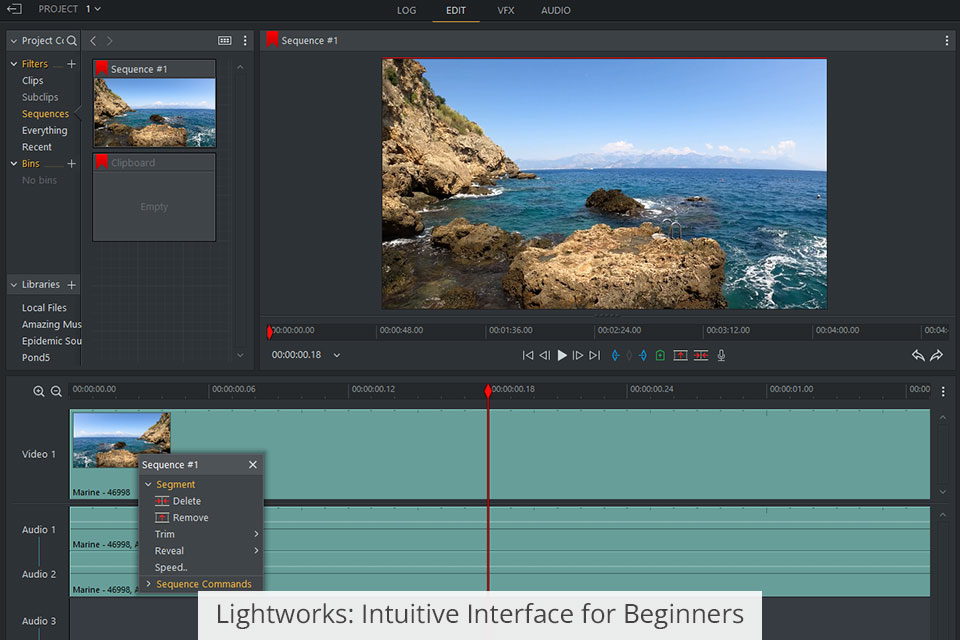
Lightworks is a highly functional movie editor, the basic toolset of which is available for free. Pros who are looking for more sophisticated features can get all the required options by purchasing a subscription. After launching the program, a new ‘Startup Wizard’ will pop up that allows making the initial configurations. Here you can choose the language of UI, set keyboard shortcuts, as well as select the required layout.
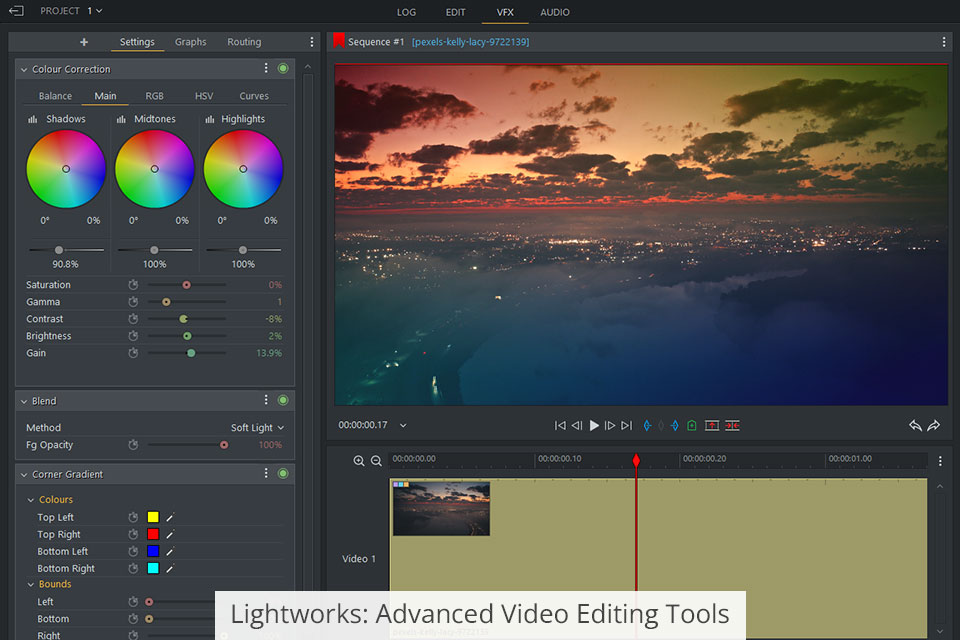
Similar to Adobe Express, this video editing software for Windows and Mac integrates with many cloud storages including Dropbox, Google Drive, and OneDrive. To sign in to one of the providers, find a little ‘+’ next to Libraries and click it.
The program’s VFX section contains top-notch color correction tools for creating impressive projects. You can benefit from a collection of pre-designed LUTs made for ARRI, Canon, GoPro, Panasonic, RED, and Sony cameras, or upload custom ones if required.
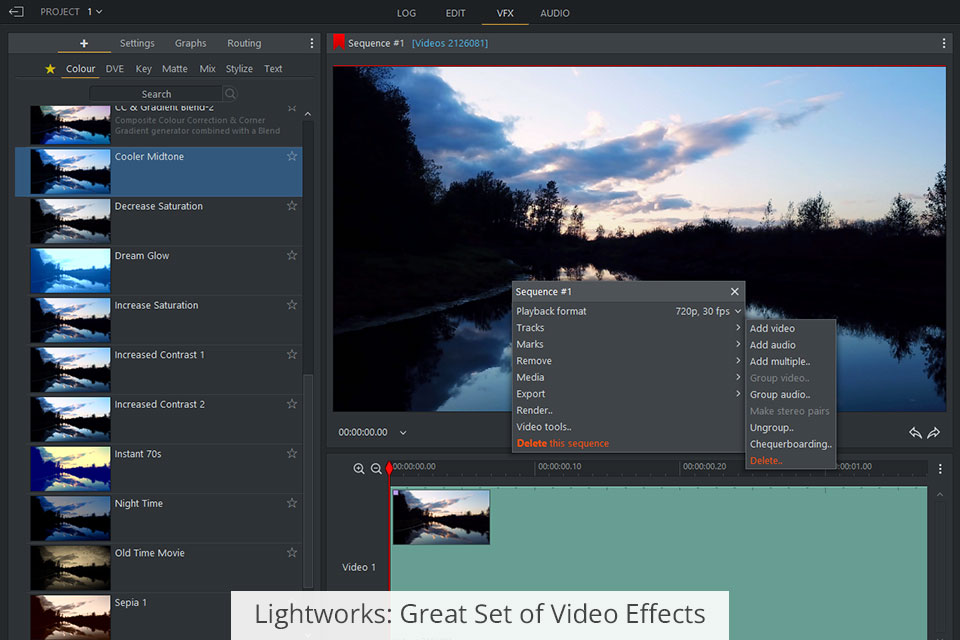
One of the main advantages of this free video editing software is its ability to handle Apple’s ProRes codecs. No matter what Lightwork version you are going to install, each edition will manage to decode from 422 Proxy right up to 4444 XQ. The support of this technology enables high-performance editing with LUTs on Macs, Windows, and Linux devices.
The analysis has shown that both objects of my Adobe Express vs Lightworks comparison have free versions with restricted sets of features. Purchasing Create or Pro version opens access to all top-notch functions you might dream of when working on your designs. These are YCbCr for Create and Pro, Split View and CIE only for Pro, and other handy options.


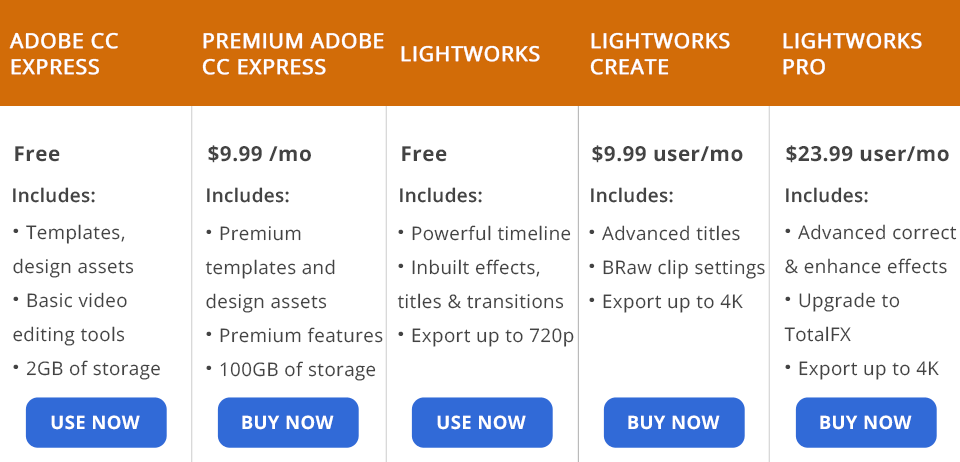
Adobe Express is available for free and has a premium version that costs $9.99. Of course, the paid functionality of the program is more extensive and includes unique templates and digital assets, a library of 20,000 Adobe Fonts, grids, and font pairs. 100GB of storage area is another bonus. Besides, the developers offer a free a 30-day trial for testing the editor’s toolkit for free.
I think it is wonderful that Lightworks’ free version has no time limits. However, its toolkit is not sufficient for professional filmmakers, marketers, and other creators, so they should consider purchasing one of two packages. These are Lightworks Create for $9.99 user/mo and Lightworks Pro for $23.99 user/mo.